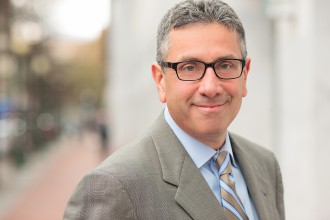Who can be considered a beneficiary of a wrongful death victim?
Losing a loved one is an emotionally devastating experience, and when that loss is the result of someone else’s negligence, it can compound the pain. In Virginia, as in many other states, the legal system provides a means for seeking justice through wrongful death claims. However, understanding who qualifies as a beneficiary in such cases is crucial.
Virginia Wrongful Death Statute
Virginia’s wrongful death statute, found in Code of Virginia § 8.01-50, outlines the legal framework for pursuing a wrongful death claim. The statute explicitly states that a personal representative of the deceased person’s estate must bring the action. The personal representative is tasked with filing the lawsuit on behalf of the deceased person’s beneficiaries.
Who Can Be Considered a Beneficiary?
Virginia law defines beneficiaries as the individuals entitled to recover damages in a wrongful death case. The statute establishes a hierarchy of potential beneficiaries based on the closeness of their relationship to the deceased person. The primary beneficiaries, who have the first right to recover, include:
- Surviving Spouse: The surviving spouse is the first in line to be considered a beneficiary in a wrongful death claim in Virginia. If the deceased person was married at the time of their death, their spouse has the right to pursue a claim for damages.
- Children: If there is no surviving spouse, or if the surviving spouse does not pursue the claim within a specified timeframe, the deceased person’s children may be entitled to damages. This includes both biological and adopted children.
- Parents: In the absence of a surviving spouse or children, the parents of the deceased person may be eligible to recover damages. This includes both biological and adoptive parents.
- Siblings: If the deceased person is not survived by a spouse, children, or parents, the next level of beneficiaries would be siblings. Siblings are entitled to recover damages if there are no higher-ranking beneficiaries.
- Other Dependents: In certain cases, individuals who were financially dependent on the deceased person and can prove such dependency may also be considered beneficiaries. This could include stepchildren, grandchildren, or other family members who relied on the deceased person for support.
It’s important to note that these categories are hierarchical, meaning that beneficiaries higher up in the order must be compensated before those lower down. For example, a surviving spouse would have priority over siblings in terms of recovering damages.
Virginia Wrongful Death Settlements
Virginia law allows for the recovery of various damages in a wrongful death case, including but not limited to:
- Economic Damages: This includes compensation for financial losses such as medical expenses, funeral costs, and the loss of the deceased person’s income and financial support.
- Non-Economic Damages: These damages cover intangible losses such as the pain and suffering endured by the deceased person before their death and the emotional distress experienced by the beneficiaries.
Virginia Wrongful Death Lawyer

